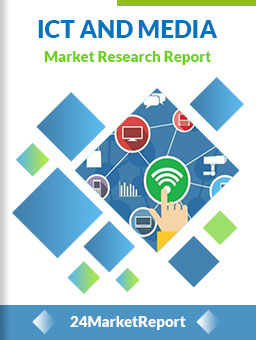
Download FREE Report Sample
Download Free sampleMARKET INSIGHTS
Global Gamification Learning Platform market size was valued at USD 850 million in 2024. The market is projected to grow from USD 930 million in 2025 to USD 1,511 million by 2032, exhibiting a CAGR of 8.8% during the forecast period.
Gamification Learning Platforms are digital education systems that incorporate game design elements to enhance learning outcomes. These platforms utilize mechanics like points, badges, leaderboards, and interactive challenges to increase user engagement and knowledge retention. By transforming traditional learning into an immersive experience, these solutions effectively blend education with entertainment while maintaining pedagogical objectives.
The market growth is driven by increasing digitalization in education and corporate training sectors, where engagement and measurable learning outcomes are becoming priorities. The shift towards microlearning and mobile-based education further accelerates adoption. Major players like Docebo and TalentLMS are expanding their gamification capabilities, while newer entrants like Gametize and Funifier are introducing innovative engagement models, creating a dynamic competitive landscape.
Growing Digital Transformation in Education to Accelerate Market Expansion
The global shift toward digital learning platforms is significantly driving the gamification learning market. With over 73% of educational institutions now adopting hybrid learning models, the demand for engaging digital solutions has skyrocketed. Gamification platforms address key challenges in digital education by increasing learner engagement through interactive elements like points, badges, and leaderboards. Recent studies show that gamified learning improves knowledge retention by up to 40% compared to traditional methods, making it a powerful tool for both academic and corporate training environments.
Corporate Sector Adoption of Gamified Training to Fuel Growth
To know more about market statistics, Download a FREE Sample copy
The corporate sector's increasing investment in employee training programs is creating substantial demand for gamification platforms. Organizations report 50% higher completion rates for gamified training modules versus conventional e-learning courses. This trend is particularly strong in industries requiring compliance training, where completion rates below 60% were common before gamification implementation. Major companies now allocate 25-30% of their L&D budgets specifically for gamified solutions, recognizing their effectiveness in skill development and performance tracking.
Advancements in AI and Adaptive Learning Technologies
The integration of artificial intelligence with gamification platforms is creating more personalized and effective learning experiences. Modern systems analyze individual learning patterns in real-time, automatically adjusting content difficulty and delivery methods. This technological evolution addresses the one-size-fits-all limitation of early gamification platforms, with AI-driven systems showing 35% better learning outcomes. Additionally, the emergence of VR-based gamification in specialized training scenarios, such as healthcare simulations, is opening new growth avenues for market players.
High Implementation Costs and ROI Measurement Challenges
While gamification platforms offer significant benefits, their adoption faces financial and measurement barriers. Initial setup costs can range from $50,000 to $500,000 for enterprise solutions, with ongoing maintenance adding 20-30% annually. Many organizations struggle to quantify the return on these investments, particularly when measuring soft skills development or behavioral changes. This financial constraint is particularly acute for SMEs, where training budgets average just 1-2% of payroll compared to 4-5% in large corporations.
Design and Content Development Complexities
Developing effective gamified content requires specialized expertise that combines instructional design with game mechanics understanding. The industry currently faces a shortage of professionals with these hybrid skills, leading to prolonged development cycles. Poorly designed gamification can actually decrease engagement, with studies showing 30% of users disengaging from platforms with overly complex or irrelevant game elements. This creates a quality barrier that limits market expansion, particularly in regions with less mature e-learning ecosystems.
Emerging Markets and Vertical-Specific Solutions Present Growth Potential
The Asia-Pacific region is experiencing 12.5% annual growth in gamified learning adoption, nearly double the global average. Localized solutions addressing regional education styles and business practices represent a significant untapped opportunity. Similarly, industry-specific platforms for healthcare, manufacturing, and financial services demonstrate 25% higher engagement rates than generic solutions, pointing to vertical specialization as a key growth strategy.
Integration with Workforce Analytics Creates New Value Propositions
Advanced platforms now integrate gamification with comprehensive analytics dashboards, providing organizations with detailed insights into skill gaps and training effectiveness. These solutions command premium pricing (30-40% higher than basic platforms) while showing 60% higher renewal rates. The ability to demonstrate concrete business impact through data is transforming gamification from a nice-to-have feature to a strategic workforce development tool.
Sustainability of User Engagement Over Time
A critical challenge facing the industry is maintaining long-term engagement, as the novelty effect of gamification elements typically fades within 6-12 months. Platforms must continuously innovate their game mechanics and content to prevent disengagement, with research indicating a 50% drop in participation rates without regular updates. This creates ongoing development costs and content refresh requirements that many organizations underestimate during initial implementation.
Balancing Entertainment and Educational Value
Striking the right balance between game enjoyment and learning effectiveness remains an industry challenge. Excessive focus on game mechanics can dilute educational content, while overly academic approaches reduce engagement. Successful platforms invest heavily in user experience research, with top performers dedicating 15-20% of their R&D budgets to continuous interface and interaction testing.
Cloud-Based Solutions Dominate Due to Scalability and Remote Accessibility
The market is segmented based on type into:
Cloud-Based
Subtypes: Public, Private, Hybrid
Web-Based
Subtypes: SaaS, Custom Web Applications
Corporate Training Leads Adoption due to Increased Focus on Employee Engagement
The market is segmented based on application into:
Corporate Training
Academic Education (K-12 and Higher Education)
Professional Certification
Military & Defense Training
Others
Large Enterprises Account for Significant Market Share Due to Higher Budget Allocations
The market is segmented based on end-user into:
SMEs
Large Enterprises
Educational Institutions
Government Organizations
Subscription-Based Models Gain Traction for Cost-Effective Long-Term Learning
The market is segmented based on pricing model into:
Subscription-Based
One-Time License
Freemium
Custom Pricing
Gamification Platforms Compete for Market Share Through Innovation and Strategic Differentiation
The global gamification learning platform market features a fragmented yet rapidly evolving competitive landscape, blending established enterprise software providers with specialized edtech innovators. TalentLMS and Docebo currently lead the market, collectively accounting for nearly 25% of global revenue in 2024. Their dominance stems from comprehensive feature sets integrating AI-powered adaptive learning with robust gamification mechanics, serving both corporate training and academic sectors.
SAP Litmos and Adobe Captivate Prime have gained significant traction through seamless integration with broader enterprise ecosystems, particularly appealing to Fortune 500 companies implementing large-scale digital transformation initiatives. Meanwhile, agile specialists like Growth Engineering and EdApp are carving niche positions through mobile-first microlearning platforms featuring advanced behavioral analytics and social learning components.
Recent market developments highlight intensifying competition, with platform providers increasingly focusing on neuroscientific learning methodologies and immersive technologies. The emergence of mixed reality capabilities has become a key differentiator, as demonstrated by Gametize's recent AR-powered workforce training modules. Additionally, many vendors are expanding their content marketplaces - Thinkific reported 75% growth in third-party course offerings after introducing competency-based progression tracking in 2023.
Strategic acquisitions are reshaping market dynamics, evidenced by D2L's purchase of game-based learning specialist Practice and Cornerstone OnDemand's integration of gamified upskilling paths. These moves reflect the industry's convergence of LMS functionality with engagement-focused features to create more compelling learning experiences.
TalentLMS (U.S.)
Docebo (Canada)
Learning Pool (UK)
iSpring Learn (U.S.)
Tovuti LMS (U.S.)
Rockstar (Singapore)
Thinkific (Canada)
KREDO (India)
UpsideLMS (India)
SAP Litmos (U.S.)
Adobe Captivate Prime (U.S.)
eFront (France)
Paradiso (U.S.)
Growth Engineering (UK)
EdApp (Australia)
The global push toward digital learning solutions has significantly boosted the adoption of gamification learning platforms across educational and corporate sectors. With over 90% of companies reporting improved employee engagement through gamified training modules, the corporate learning segment has become a key growth driver. While traditional e-learning platforms struggle with completion rates below 20%, gamified solutions demonstrate completion rates exceeding 85%, highlighting their effectiveness. Recent advancements in artificial intelligence now enable these platforms to offer personalized learning paths and real-time adaptive challenges, further increasing their value proposition.
Microlearning and Mobile Compatibility
The integration of microlearning principles with gamification has emerged as a dominant trend, with 67% of organizations now prioritizing bite-sized learning modules. Mobile-compatible gamified platforms have seen particular growth, accounting for nearly 40% of market revenue as professionals increasingly access training through smartphones. This shift reflects the demand for on-the-go learning solutions that fit into busy schedules while maintaining high engagement levels through game mechanics.
The corporate training sector now represents 52% of gamification platform usage, prompting vendors to develop sophisticated business-specific solutions. Platforms are increasingly incorporating virtual reality elements and social learning features to simulate real-world scenarios, with the leadership training segment growing at 25% annually. While development costs remain high for advanced features, the demonstrated 300% return on investment for gamified employee onboarding programs continues to justify corporate spending in this space. Additionally, integration with existing HR systems and performance metrics has become a standard requirement for enterprise clients.
North America
The North American market leads in adoption due to mature digital education infrastructure and high corporate investment in employee training solutions. The U.S. accounts for over 60% of regional revenue, driven by widespread LMS integration in corporate and academic sectors. Key growth drivers include the push for upskilling/reskilling workforces and government initiatives like the $1.2 billion Digital Equity Act supporting educational technology. Major players like Adobe Captivate Prime and SAP Litmos dominate, offering advanced features such as AI-driven personalization and VR-based gamification. Challenges persist in smaller enterprises due to higher implementation costs, but cloud-based solutions are gradually overcoming this barrier.
Europe
Europe's market thrives on strict data privacy regulations (GDPR) and strong vocational training culture. Germany and the U.K. collectively hold 45% market share, with particular strength in manufacturing sector upskilling. The region shows higher preference for hybrid models combining web-based platforms with instructor-led training. GDPR compliance has accelerated development of on-premise solutions for sensitive industries like healthcare and finance. While Western Europe matures, Eastern Europe emerges as a growth hotspot with 35% year-over-year adoption increases in Poland and Czech Republic. However, fragmentation across 28+ education systems creates localization challenges for vendors.
Asia-Pacific
APAC demonstrates fastest growth at 11.2% CAGR, propelled by digital education mandates in India (National Education Policy 2020) and China's $500 billion edtech investment. The region benefits from mobile-first adoption, with 78% learners accessing platforms via smartphones. India's BYJU'S and China's Yuanfudao lead with localized K-12 solutions featuring vernacular content. While large enterprises drive current demand, the SME sector presents untapped potential through affordable SaaS models. Challenges include low digital literacy in rural areas and intense price competition among domestic providers squeezing margins.
South America
Market growth remains moderate but steady, with Brazil representing 62% of regional revenue. The corporate sector shows strongest adoption, especially in banking and retail employee training. Economic instability in Argentina and Venezuela continues to hinder large-scale deployments, pushing demand toward pay-as-you-go cloud solutions. Local players like Eduzz gain traction with microlearning features tailored for Portuguese-speaking markets. Government partnerships, such as Colombia's SENA Virtual vocational program, provide growth avenues, though infrastructure limitations in rural zones persist as adoption barriers.
Middle East & Africa
The GCC nations drive 87% of regional market value, fueled by vision plans like UAE's Smart Learning Initiative and Saudi Arabia's 70% digital education target by 2030. International providers partner with local telecoms to overcome low credit card penetration through mobile billing. South Africa emerges as the African leader with corporate e-learning adoption in mining and financial services. While the market shows promise, growth outside oil-rich economies suffers from low broadband penetration and limited local content in native languages, restricting mass-market scalability currently.
This market research report offers a holistic overview of global and regional markets for the forecast period 2025–2032. It presents accurate and actionable insights based on a blend of primary and secondary research.
✅ Market Overview
Global and regional market size (historical & forecast)
Growth trends and value/volume projections
✅ Segmentation Analysis
By product type or category
By application or usage area
By end-user industry
By distribution channel (if applicable)
✅ Regional Insights
North America, Europe, Asia-Pacific, Latin America, Middle East & Africa
Country-level data for key markets
✅ Competitive Landscape
Company profiles and market share analysis
Key strategies: M&A, partnerships, expansions
Product portfolio and pricing strategies
✅ Technology & Innovation
Emerging technologies and R&D trends
Automation, digitalization, sustainability initiatives
Impact of AI, IoT, or other disruptors (where applicable)
✅ Market Dynamics
Key drivers supporting market growth
Restraints and potential risk factors
Supply chain trends and challenges
✅ Opportunities & Recommendations
High-growth segments
Investment hotspots
Strategic suggestions for stakeholders
✅ Stakeholder Insights
Target audience includes manufacturers, suppliers, distributors, investors, regulators, and policymakers
-> Key players include TalentLMS, Docebo, Learning Pool, iSpring Learn, Tovuti LMS, SAP Litmos, Adobe Captivate Prime, and Growth Engineering, among others.
-> Key growth drivers include increasing digital education adoption, demand for interactive learning solutions, corporate training needs, and integration of AI-driven personalization.
-> North America holds the largest market share due to strong edtech infrastructure, while Asia-Pacific is experiencing the fastest growth with rising digital education investments.
-> Emerging trends include mobile-first learning platforms, VR/AR integration, microlearning gamification, and data-driven adaptive learning paths.

Speak to our Custom Research Team and get the Custom Research in a budget
Custom ResearchFrequently Asked Questions ?
A license granted to one user. Rules or conditions might be applied for e.g. the use of electric files (PDFs) or printings, depending on product.
A license granted to multiple users.
A license granted to a single business site/establishment.
A license granted to all employees within organisation access to the product.
Upto Working 24 to 48 hrs
Upto 72 hrs max - Weekends and Public Holidays
Online Payments with PayPal and CCavenue
Wire Transfer/Bank Transfer
Hard Copy




 Industry Market Size
Industry Market Size SWOT Analysis
SWOT Analysis Industry Major Players
Industry Major Players Revenue Forecasts
Revenue Forecasts Historical and Forecast Growth
Historical and Forecast Growth Profitability Analysis
Profitability Analysis
























